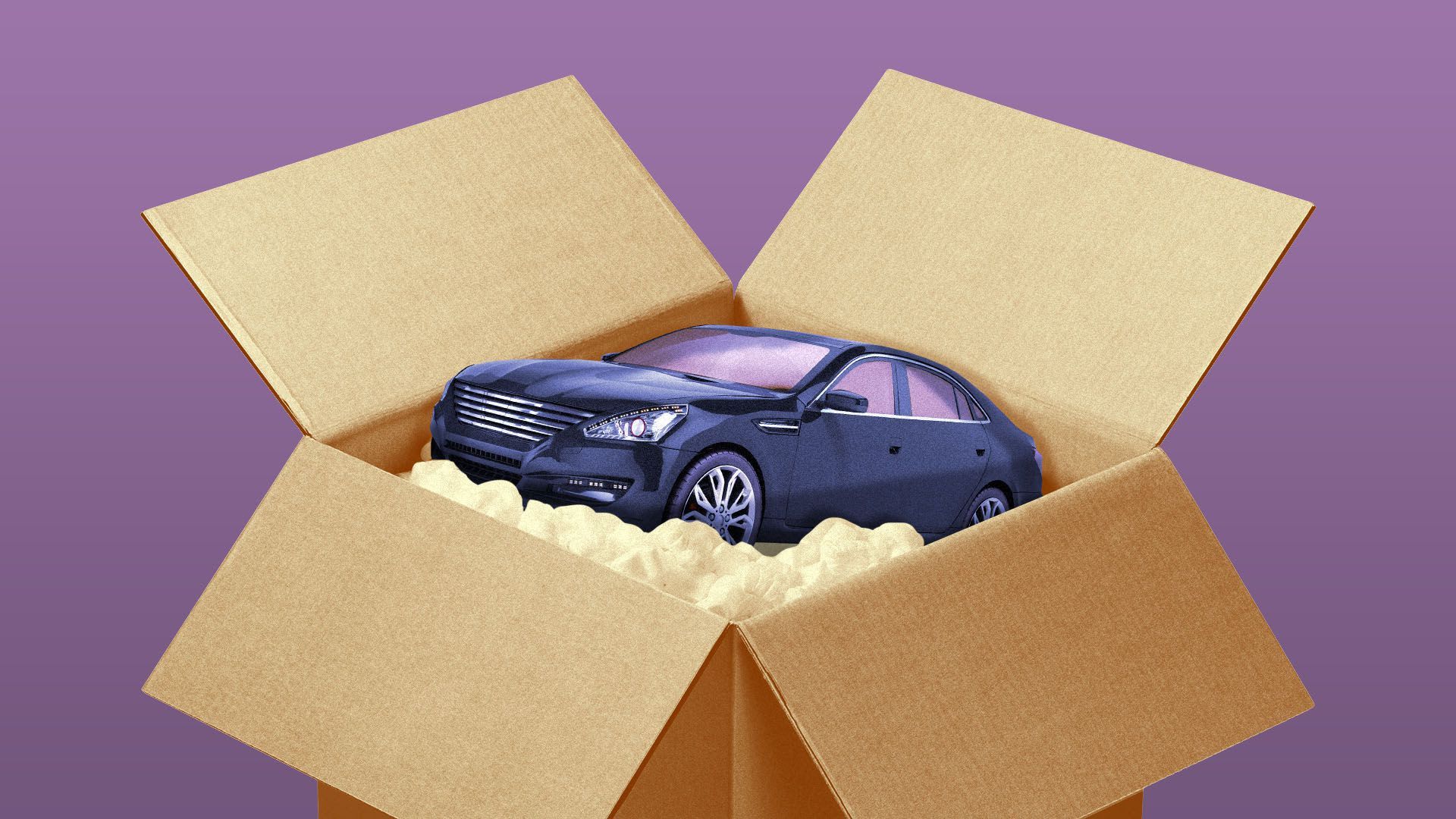Coronavirus puts ambitious plans for self-driving cars on the shelf
Add Axios as your preferred source to
see more of our stories on Google.

Illustration: Sarah Grillo/Axios
In two weeks, the coronavirus has brought the entire U.S. auto industry to a screeching halt. When it finally sputters back to life, many companies may be forced to change, defer — or even abandon — their ambitious plans for self-driving vehicles.
The big picture: Auto factories are shut down across North America to prevent the spread of the virus among workers, while stay-at-home orders have kept car shoppers away from showrooms. The resulting financial shock means carmakers have shifted their focus to survival, not investing in expensive technologies with no clear payoff.
The uncomfortable truth about self-driving cars is that there's no clear business model yet.
- Most carmakers, tech giants and startups racing to develop the technology assume urban robotaxis are a good place to start, because their 24/7 operation makes the economics work better.
- But after this pandemic, shared anything seems less appealing, especially a car where there's no driver available to disinfect between passengers.
- Spray disinfectants and ultraviolet lighting, along with antimicrobial materials, could help, along with more voice commands to replace touchscreens.
- Even so, "I think there's a very good chance that autonomy for robotaxis may be reexamined," says Gartner Group vice president Mike Ramsey.
Autonomous delivery seems made for a pandemic like this, on the other hand. People who are afraid to go out have discovered the convenience of home delivery in huge numbers.
- Small delivery robots like Starship, Kiwibot and Amazon's Scout were already piloting delivery services before the coronavirus hit.
- Nuro, whose low-speed driverless delivery vans just received federal approval, could be the beneficiary of exquisite timing.
- Other AV companies like Waymo, Cruise and Argo AI, might pivot away from driverless ride-hailing and focus more of their efforts on automated deliveries, analysts predict.
- "This is a tremendous market opportunity for them, and I think they're definitely going to go for it," says Gary Silberg, head of automotive consulting at KPMG.
Yes, but: When the economy does begin to recover, investment capital could be hard to come by.
- Traditional carmakers will be focused on getting their core business back up and running and might be forced to choose between spending limited resources on new vehicles or future technologies.
- AV startups, meanwhile, could find it more difficult to secure investment capital because the timeline for self-driving cars has likely been extended, says RBC's Robert Spak.
- Ride-hailing firms like Uber and Lyft could also struggle to keep funding their own internal AV efforts, he said.
Cruise CEO Dan Ammann told Axios his company is focused on keeping employees safe and sticking to its mission.
- "We're fortunate in that we're stable, well-funded and have a crystal clear mission, and that's a good position to be in right now."
What's next: Industry consolidation is likely to accelerate within the next six to 12 months.
